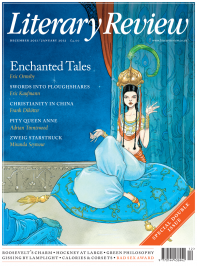David Annand
Frogs & Flying Carpets
We Others: New and Selected Stories
By Steven Millhauser
Corsair 400pp £20
Steven Millhauser’s preoccupations include mimicry, magic, monomania, the sun, the absurd, the birth of modernity, the ontology of ghosts, and above all the project of fiction: the people who read it, the people who make it, what it can do and what it can’t. This is more than enough to sustain a career and then some.
And what a career it’s been. Eleven previously published works, among them a number of highly regarded story collections and his 1996 novel, Martin Dressler, which won the Pulitzer Prize. For some reason, though, he seems yet to have found the audience he deserves in the UK, which is odd because, although most of his stories are set in the US, many of them achieve the fable-like universality that normally reaches beyond borders. That we Brits have been so slow on the uptake is a result, probably, of our want in this country for a magazine that showcases short fiction and has anything like the import or reach of Millhauser’s great American patrons: Harper’s and The New Yorker, both of which have done much to promote his previous collections. If anything is likely to right this attention deficit, however, it’s this near-perfect introduction to his oeuvre, which combines seven new stories with fourteen older ones written over a period of thirty years.Drawn from four different collections, the older stories ably demonstrate his virtuosity and range. As well as a deadpan account of Tom and Jerry’s existential anguish, there is a Borgesian parable on the limits of the aesthetic and a postmodern addition to the Sinbad cycle. Interspersed with these more obviously

Sign Up to our newsletter
Receive free articles, highlights from the archive, news, details of prizes, and much more.@Lit_Review
Follow Literary Review on Twitter
Twitter Feed
Russia’s recent efforts to destabilise the Baltic states have increased enthusiasm for the EU in these places. With Euroscepticism growing in countries like France and Germany, @owenmatth wonders whether Europe’s salvation will come from its periphery.
Owen Matthews - Sea of Troubles
Owen Matthews: Sea of Troubles - Baltic: The Future of Europe by Oliver Moody
literaryreview.co.uk
Many laptop workers will find Vincenzo Latronico’s PERFECTION sends shivers of uncomfortable recognition down their spine. I wrote about why for @Lit_Review
https://literaryreview.co.uk/hashtag-living
An insightful review by @DanielB89913888 of In Covid’s Wake (Macedo & Lee, @PrincetonUPress).
Paraphrasing: left-leaning authors critique the Covid response using right-wing arguments. A fascinating read.
via @Lit_Review